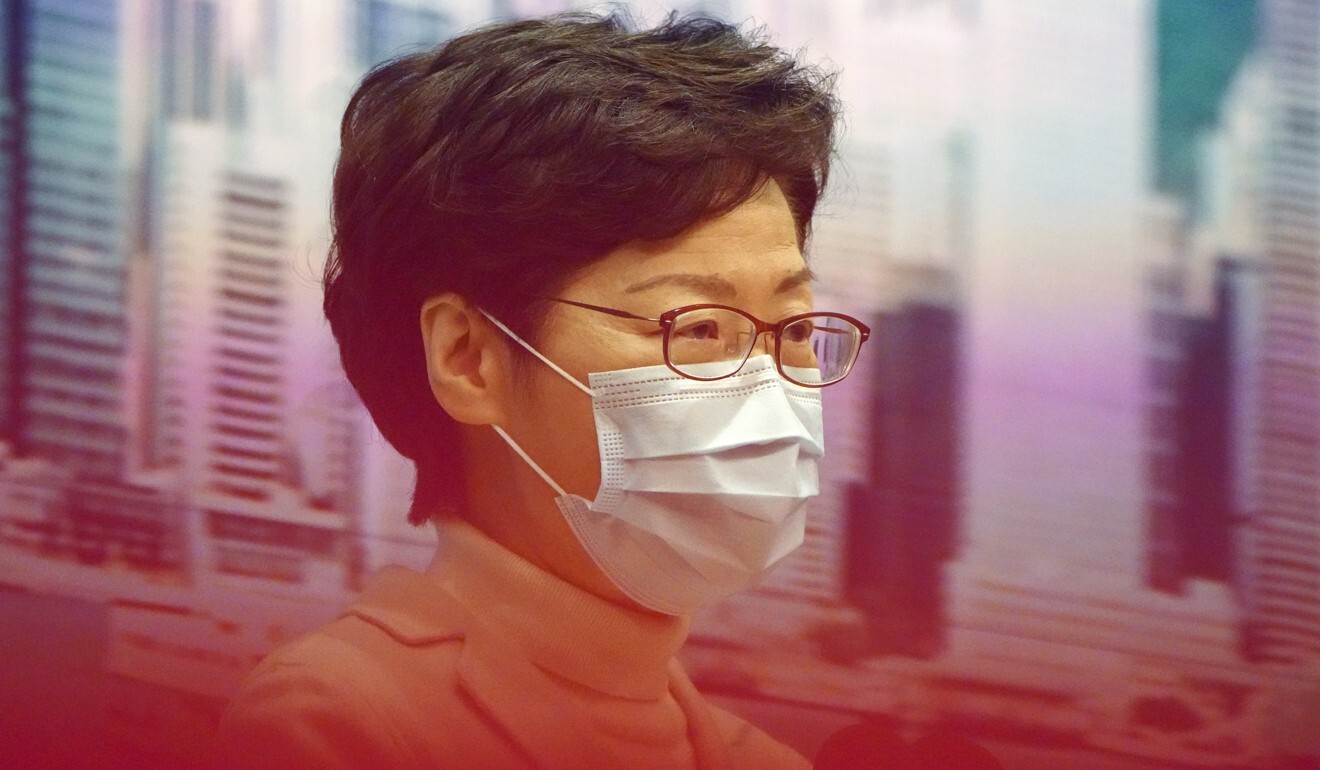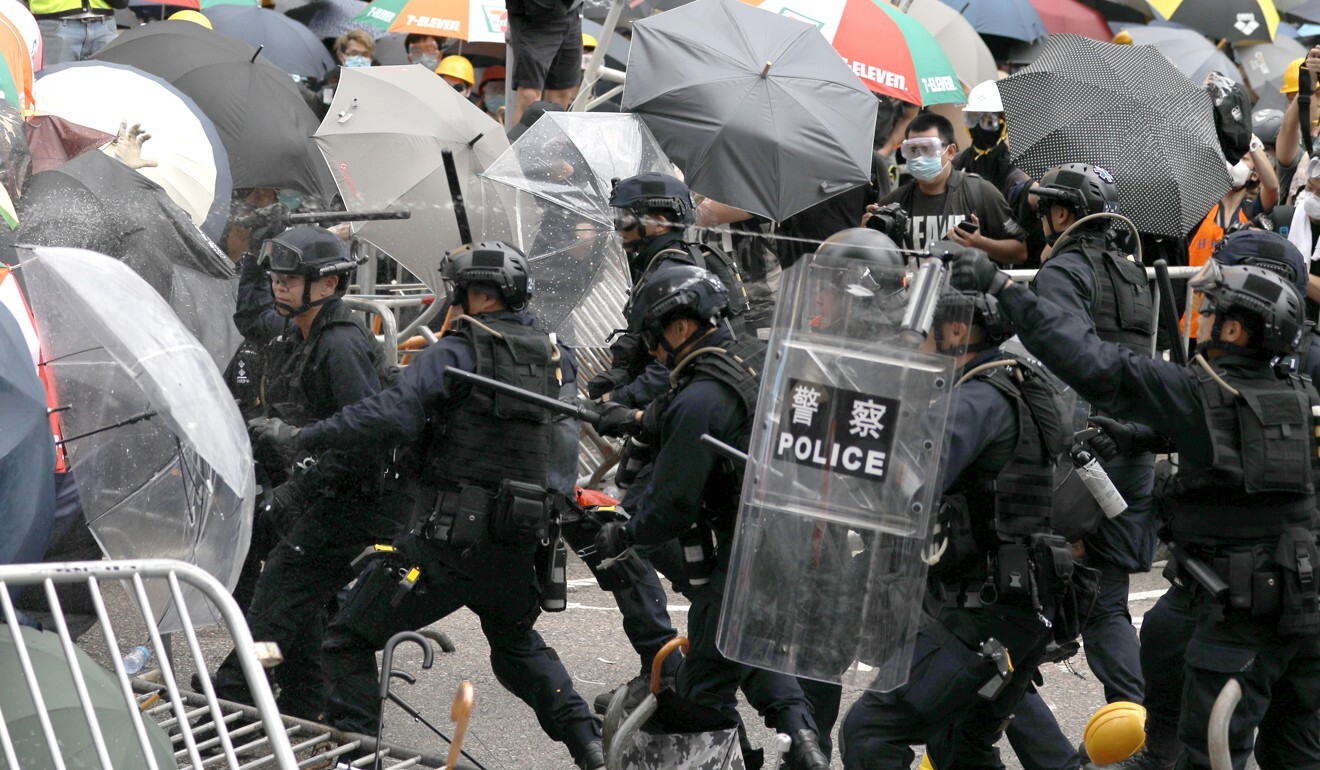
Lawyers for Hong Kong’s police watchdog defend its review of the force’s handling of anti-government protests
- IPCC lawyer says the watchdog’s fact-finding exercise of police handling of protests is ‘totally different’ from what one would expect of an independent investigation
- The lawyers were responding to a judicial challenge mounted by activist Hendrick Lui, who argued IPCC had no powers to investigate the public order events
The Independent Police Complaints Council (IPCC) was responding to a judicial challenge mounted by social worker and activist Hendrick Lui Chi-hang, who argued that the watchdog had no powers to investigate the public order events that rocked the city last year.
The IPCC has completed an interim report, following city leader Carrie Lam Cheng Yuet-ngor’s previous pledge that a report would be ready by early February, but did not publish it in light of the present case.

Lawyers wearing masks, wigs, and robes gathered in their respective offices to make oral submissions, which were simultaneously live-streamed into large screens set up in open court attended by a handful of members of public, a dozen reporters and the presiding judge, Mr Justice Keith Yeung Kar-hung, who called it a “smooth hearing”.
“It’s been a very interesting experience,” Stewart Wong Kai-ming SC, for IPCC, said. “Thank you for arranging for the case to be heard without further delay.”
IPCC probe into police’s handling of protests to come under legal scrutiny
Hong Kong’s beleaguered government has relied on the IPCC as the key channel to hold police accountable since the now-withdrawn extradition bill sparked mass protests since last June.
The watchdog announced in July it would conduct a fact-finding study and look into six major protests, between June 9 and July 2 last year, to provide recommendations on how to prevent a repeat of similar incidents. Within two months, it received more than 1,300 submissions and 450 complaints for the exercise.
But its task has been caught in a series of controversies amid calls from protesters and opposition lawmakers for Lam to set up an independent judge-led commission of inquiry to probe the alleged use of excessive force by officers handling the protests.

Paul Harris SC, for Lui, said the Independent Police Complaints Council Ordinance did not provide IPCC with any express power to carry out the review, which he described as a proactive investigation “clearly intended not only to gather information but to assess it and reach conclusions”.
“That is the fatal flaw,” Harris said. “[IPCC] cannot turn itself from a body observing, monitoring, and reviewing complaints to some kind of police oversight council. It wouldn’t be called the police complaints council, it would be called the police management council or review council.”
Wong, however, said it was “very clear” that the “fact-finding” exercise was “totally different” from what one would expect of an independent investigation because it did not involve adjudication or draw conclusions as to what happened in the events under scrutiny.
He said the exercise only involved putting information gathered from open sources and voluntary submissions in “proper, usable form” – such as a chronological order – to provide factual context for IPCC’s consideration of recommendations on police practices and procedures.
“We are not talking about an investigation as that term is understood,” he continued. “It’s unfortunate that the same term was used.”
‘Unfair’ to burden IPCC with unrest probe without powers, its former chief says
Wong further argued that IPCC was empowered to carry out such a task, as the ordinance provided under Section 8(2) its function to “do all such things that are reasonably necessary for, or incidental or conducive to, the performance of its functions under this Ordinance”. One such function was “to identify any fault or deficiency in any practice or procedure adopted by the police force that has led to or might lead to reportable complaints, and to make recommendations”.
“Function involves power and duty,” he continued. “It’s important to provide wide powers to Section 8(2) to cater for unforeseen circumstances.”
A restrictive reading of the ordinance would render IPCC a passive, toothless body that could not have been the legislative intent, Wong added.
The counsel also questioned whether Lui was in a position to apply for judicial review, given the social worker’s lack of interest when he had not and would never lodge official complaints against police.
But Harris countered that his client’s lack of trust in the system should not bar him from mounting the legal challenge.
“The case affects many, many people, potentially everyone,” Harris said. “It’s a very important matter.”
Yeung has reserved judgment.

The Covid-19 pandemic has prompted the judiciary to make an unprecedented decision to adjourn all cases, apart from those involving urgent and essential matters, since January 29.
Chief Justice Geoffrey Ma Tao-li said the judiciary had been actively considering alternative methods to hear cases with the aid of technology, as court closures had affected 18 per cent of the annual caseload.
Mr Justice Russell Coleman in February conducted the city’s first remote hearing via telephone conferencing in the High Court and called for a review of how cases could be managed in times of crisis such as the current pandemic.
The technology extended to include visuals for a Family Court appeal case on Monday, after the judiciary announced last week that it would allow videoconferencing for selected hearings at the Court of First Instance and the Court of Appeal.

